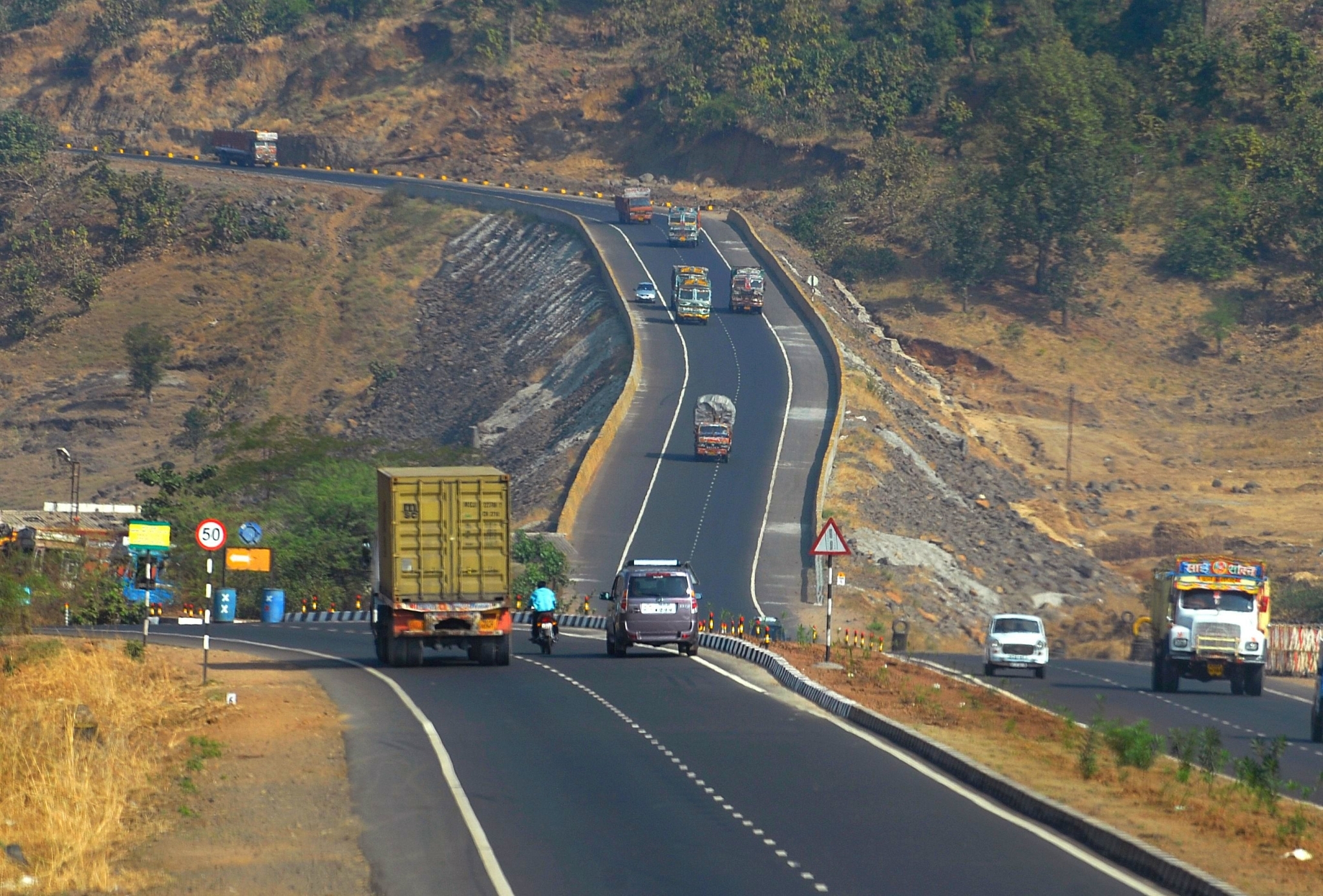News Brief
Work On 262-Km Long Chennai-Bengaluru Expressway To Soon Begin After Much Delays, Will Transform Into Industrial Corridor Too

(Representative Image) Mumbai -Agra National Highway near Kasara Ghat in Maharashtra (Abhijit Bhatlekar/Mint via Getty Images)
Finance Minister Nirmala Sitharaman on Saturday (1 February) announced the launch of the much-delayed Chennai-Bengaluru expressway project while presenting her second Union Budget.
Despite being identified as a critical greenfield expressway alignment as it passes several economic modes and seen as a prerequisite for Chennai-Bengaluru Industrial Corridor (CBIC), the expressway had been plagued by land acquisition delays especially in Tamil Nadu.
“Accelerated development of highways will be undertaken. This will include development of 2,500 km access-controlled highways, 9,000 km of economic corridor, 2,000 km of coastal and land-port roads and 2,000 km of strategic highways,” FM Sitharaman said during the budget speech.
Sitharaman further said that the Delhi-Mumbai expressway would be completed by 2023 and added that work on the Chennai-Bengaluru corridor would begin soon.
“The Delhi-Mumbai expressway and two other packages would be completed by 2023. Chennai-Bengaluru expressway would also be started,” she said.
The Chennai-Bengaluru expressway project is likely to commence in the next three months with land acquisition almost complete except for some stretches in Tamil Nadu.
The greenfield expressway will be a 262 km, six-lane, access-controlled expressway beginning at Hoskote in Karnataka and ending at Outer Ring Road near Chennai, cutting down the travel time between the two metropolises to around four hours from six to seven hours currently.
It will pass through Hoskote, Malur (Karnataka), V Kota, Palamaner (Andhra Pradesh), Gudiyatam, Arakkonam and Sri Perambadur (Tamil Nadu).
Originating at Hoskote, the Bengaluru-Chennai expressway will cover a length of 75.64 km within Karnataka, 88.30 km in Andhra Pradesh and 98.32 km in Tamil Nadu passing through Tiruvallur, Kancheepuram and Vellore districts in Tamil Nadu before ending at Sriperumbudur.
There are two existing routes which connect Chennai and Bengaluru — one is via Hoskote, Kolar, Chittoor, Ranipet and Kancheepuram, which is 335 km long, and a second route via the Electronic City and Hosur which runs to a distance of 372 km.
The proposed alignment of the Bengaluru-Chennai Expressway will lie between these two stretches.
The expressway project will be executed in five phases: Bengaluru to Kolar; Kolar to Palamaner; Palamaner to Chittoor; Chittoor to Kancheepuram and Kancheepuram to Sriperumbudur.
Two proposed elevated expressways will provide last mile connectivity to Chennai.
The project, which is estimated to cost around Rs 17, 900 crore, requires the acquisition of 2,650 hectares of land.
Acquisition of land is in the final stages. By December 2018, the Centre had already spent Rs 1,370 crore towards pre-construction activities.
This will ease the flow of traffic between Bengaluru and Chennai on existing roads. At least 9,500 passenger car units travel between the two cities every day.
The expressway will also cut down the distance between the two cities by around 80 km. The current distance between Bengaluru and Chennai through Krishnagiri in Tamil Nadu is around 345 km.
Before executing all expressway projects, NHAI is insisting on the completion of at least 80 per cent land acquisition. The project involves acquisition of 2,600 hectares land, of which about 800 hectares are in Karnataka.
Karnataka and Andhra Pradesh have completed the land acquisition process while it has reached the final stages in Tamil Nadu. Tamil Nadu is set to complete the acquisition anytime.
Once the acquisition process is over, NHAI is likely to call for tenders to the prospective concessionaire under the hybrid annuity mode for all the phases together.
The construction of the expressway will boost plans to develop a mega industrial zone called the Chennai-Bengaluru Industrial Corridor (CBIC).
Japan International Co-operation Agency (JICA) has prepared a comprehensive plan for selected industrial areas along the CBIC. The corridor is planned along Chennai, Sriperumbudur, Ponnapanthangal, Ranipet, Suburbans of Vellore, Chittoor, Bangarupalem, Palamaner, Bangarpet, Hoskote and Bangalore.
The CBIC is being designed on the lines of the Delhi-Mumbai Industrial Corridor.
World-class infrastructure for industry is planned along these corridors. The long-term vision of the CBIC is to develop itself as a globally competitive manufacturing hub that promotes sustainable development by creating at least 22 million additional jobs in the next 20 years. The project will drive growth of both large industries and SMEs within the corridor and boost exports from the region by focusing on sectors like electronics, automobiles, textiles and food processing.
Support Swarajya's 50 Ground Reports Project & Sponsor A Story
Every general election Swarajya does a 50 ground reports project.
Aimed only at serious readers and those who appreciate the nuances of political undercurrents, the project provides a sense of India's electoral landscape. As you know, these reports are produced after considerable investment of travel, time and effort on the ground.
This time too we've kicked off the project in style and have covered over 30 constituencies already. If you're someone who appreciates such work and have enjoyed our coverage please consider sponsoring a ground report for just Rs 2999 to Rs 19,999 - it goes a long way in helping us produce more quality reportage.
You can also back this project by becoming a subscriber for as little as Rs 999 - so do click on this links and choose a plan that suits you and back us.
Click below to contribute.
Latest